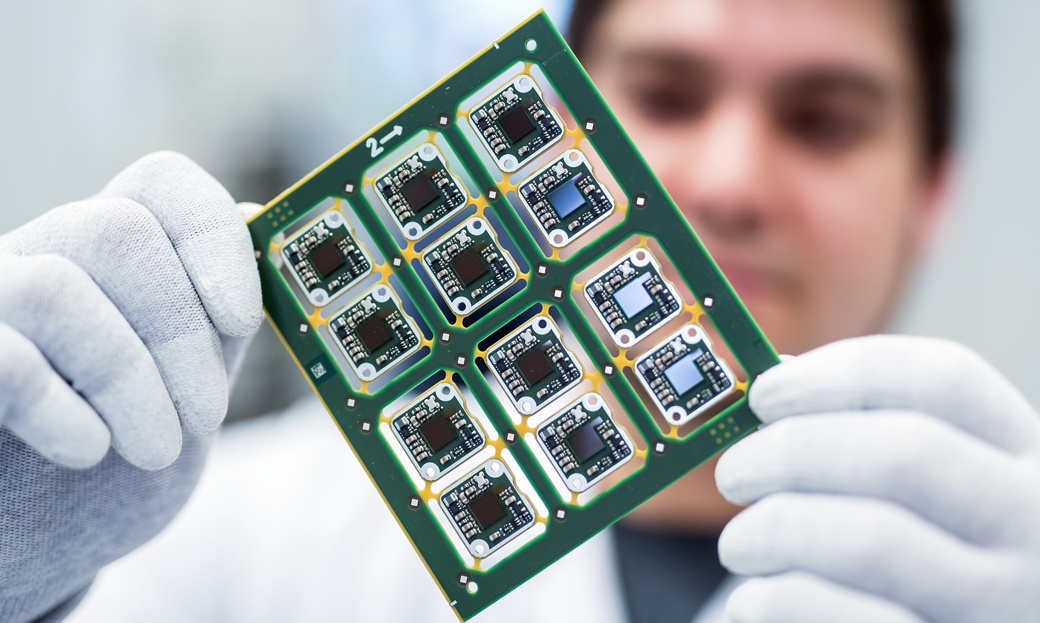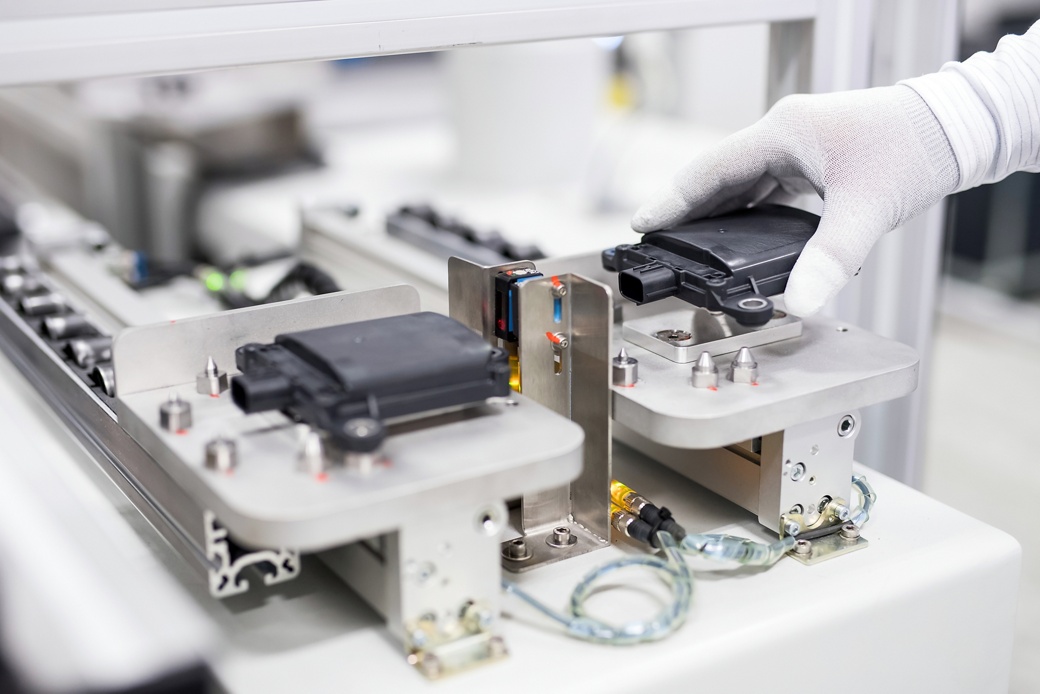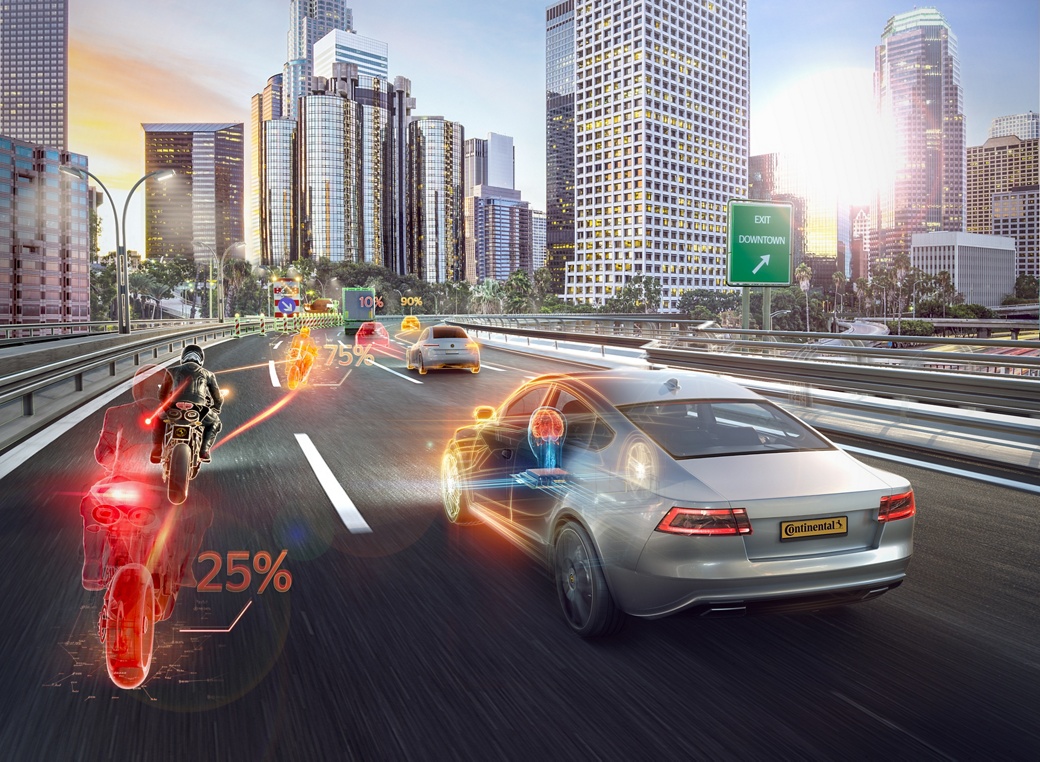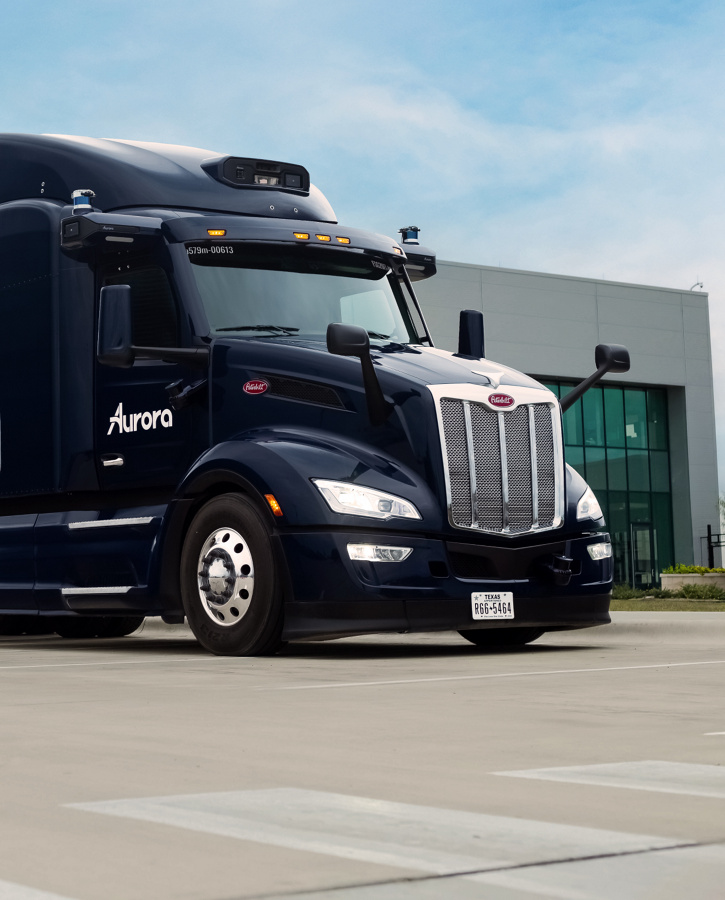Since May, the first driverless trucks have been undergoing road testing on the highway in Texas. This is the most notable achievement in the partnership between the American manufacturer of self-driving systems Aurora and Continental Automotive, which has been ongoing since 2023. Their joint goal is to bring to the road the world’s first scalable autonomous truck system, including a fallback system. Volume production and large-scale deployment are scheduled to begin in 2027. Other companies are also playing a role in the partnership. At the beginning of 2025, Aurora and Continental announced that they had chosen chip specialist Nvidia for their partnership. The main computer used to operate the driverless trucks will be developed on the basis of chips from the AI computing company. The additional, fully redundant fallback system, for which Continental is responsible, is based around a system-on-chip made by Ambarella, another of Continental’s strategic partners.
Continental Automotive, the future independent company Aumovio, maintains selected strategic partnerships, particularly in the field of future autonomous mobility technologies. These allow expertise and resources to be pooled in order to develop and offer tailor-made solutions for customers – up to and including complete systems. This gives Automobile manufacturers the best of both worlds, while also benefiting Continental Automotive and its partners.
Complex requirements make partnerships worthwhile
The partnership with Aurora is a good example of how we at Continental strategically collaborate with other companies to share in the opportunities arising from developments in the autonomous mobility market.

Aniss Ouyeder
Head of Partnerships and Innovation at the Autonomous Mobility business area
Partnerships are especially essential when it comes to autonomous driving. “We’re dealing with highly complex systems. It all starts with the sensor systems, which are developing rapidly, for example in terms of radar and camera technology. Further key elements include a powerful system-on-chip for processing the data from these sensors even faster, plus the corresponding software. Safety aspects are also important: How do I design redundancies if I want to bring an autonomous system safely onto the road?” says Ouyeder, adding, “Faced with such complex requirements and the highly dynamic market, even a company like Continental – with its broad range of expertise – can’t develop everything itself. It therefore makes sense to work together with the right partners.” There are also many new areas of software and chip development that are evolving at a rapid pace of innovation and require expertise in a wide range of technologies. One example is perception software, which relies on AI, machine learning and large data volumes. Furthermore, powerful chips and high-performance computers are required to handle all the processing tasks.
Strategic partnerships and technology partnerships
With regard to partnerships, Continental distinguishes between strategic partnerships and technology partnerships. While in the case of technology partnerships Continental Automotive builds and maintains an ecosystem (e.g. with startups) to selectively enhance its innovation capabilities, strategic partnerships focus primarily on market success. Before any potential collaboration, a structured strategy process always takes place in order to analyze the trends in the relevant target markets. The existing internal competencies are also examined, as well as areas where deliberate reliance on external partners or technologies is intended. A target vision is ultimately formulated on that basis. This vision describes the business potential that can be addressed within the framework of the partnerships. In addition to Aurora, examples of such strategic partnerships include those with Ambarella and Horizon Robotics.
Development of software and hardware systems with Ambarella
Ambarella, a specialist for semiconductors with artificial intelligence (AI), has been a Continental partner since 2023. The two companies jointly develop software and hardware systems for assisted and automated driving. These systems are AI-based and designed to be scalable. Continental’s software and hardware expertise and its broad portfolio of automotive system solutions is combined with Ambarella’s know-how in AI for computer vision processors – specifically, AI for recognizing moving images and deriving the relevant responses. In addition to developing camera-based perception solutions for driver assistance, the partners are focusing on complete solutions for further automation levels from Level 2+ all the way to autonomous vehicles, including the necessary fallback system. Chip systems from Ambarella are a key component in development of the fallback system for Aurora’s autonomous truck system, for example. Vehicle manufacturers can then flexibly integrate the joint system solutions into their latest vehicle generations.

© Joerg Koch/Continental AG
“China speed” with Horizon Robotics
Continental has for many years been working together with Shanghai-based Horizon Robotics, one of the world’s leading suppliers of edge-computing platforms for artificial intelligence. 2022 saw the launch of a joint venture named neueHTC (neue = new, HCT = Horizon Continental Technology) whose goal is to integrate Horizon Robotics’ processors and algorithms into Continental’s sensors and control units for driver assistance systems and automated driving. Horizon Robotics thereby gains access to Continental Automotive’s global reach and production base for its technology.The joint venture serves both the Chinese market and international customers.
In the joint venture with Horizon, it is not only complementary technologies that are important, but also the specific requirements of the Chinese market. The guiding principle here is “In China for China.” Aniss Ouyeder: “In the Chinese market, it makes sense to collaborate with Chinese players as well. This helps focus our efforts because it sharpens of awareness of local conditions while also making it easier to deal with the bureaucracy. But the most important aspect is speed. In China, developing a vehicle from concept to dealership usually takes only half as long as it does in Europe or the USA. We work together with our partners at this “China speed,” which makes it possible to establish technologies tailor-made for China and develop cost-efficient solutions for the global market that would otherwise not be possible.”

© Joerg Koch/Continental AG
Benefits for both sides
Ideally, a strategic partnership benefits both sides. For Continental Automotive, the cooperations allow it to access and integrate new technologies more quickly. This is particularly important at a time of such rapid change in the automotive industry. The development of new technologies is also often associated with high costs and risks, which can be reduced through partnerships. At the same time, collaborating with specialized partners accelerates development and brings new products to market faster. And finally, collaborations provide access to specialized expertise and resources that may not be readily available internally or would be too expensive to develop independently. In a nutshell, partnerships help to significantly increaseinnovation and problem-solving capabilities.
But what do the partners get out of it? A lot! After all, Continental is present worldwide with its own locations and production facilities, has a global market reach and boasts a very high level of system expertise thanks to decades of automotive experience. Another advantage is the scalability or industrialization aspect relating to new technologies: it makes a difference whether a company can produce working prototypes or whether it is capable of reliably manufacturing 100,000 units in high quality – as is required by the automotive manufacturers. “Ultimately, this creates an attractive package for customers where the result is greater than the sum of its parts.” explains Aniss Ouyeder.

Execution is king!
But what makes a partnership a successful one? “First and foremost,” says Aniss Ouyeder, “a shared vision and clear goals. Both partners need to have a clear idea of what they want to achieve together.The foundation of any partnership is mutual trust.”
When asked about the future of partnerships at Continental, his answer is brief and to the point: “Execution is king!” He goes on to add that, of course, further strategic partnerships are conceivable. However, the priority is to continue with implementation of the projects that have already been initiated with partners. “We’re already on a very good path,” says Ouyeder. “With Aurora, we’re starting with commercialization in 2027. This is the time when autonomous driving gets really exciting as we see our joint efforts finally hit the road.”
